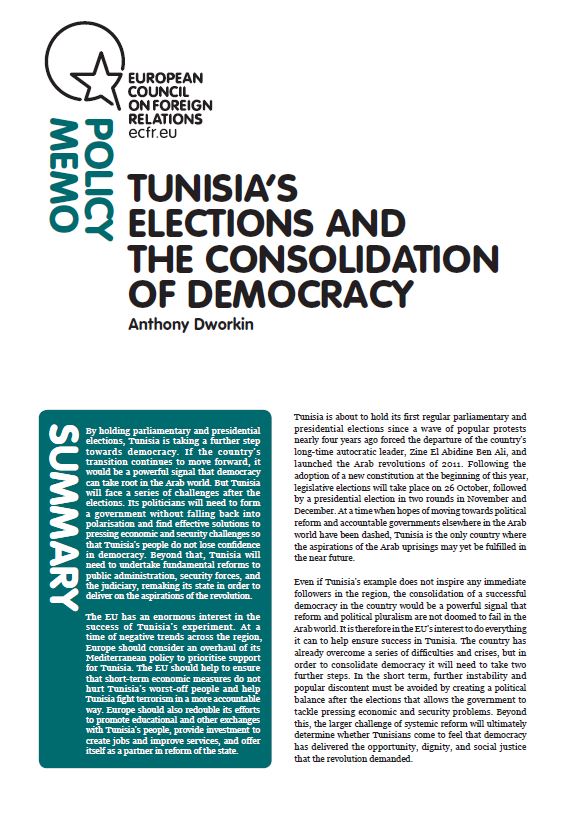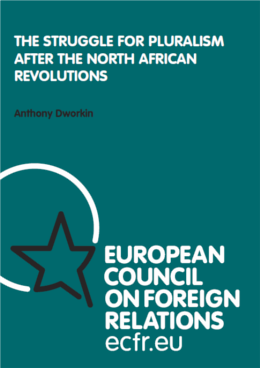16. Außenpolitische Jahrestagung der Heinrich-Böll Stiftung in Kooperation mit dem ECFR
Am 18. Und 19. Juni 2015 fand in der Heinrich-Böll Stiftung die 16. Außenpolitische Jahrestagung in Partnerschaft mit dem ECFR statt.
Am 18. Und 19. Juni 2015 fand in der Heinrich-Böll Stiftung die 16. Außenpolitische Jahrestagung in Partnerschaft mit dem ECFR statt.
Le conseguenze sul processo di pace, regione e rapporti internazionali
What impact on the peace process, the region, and Israel’s international relations?”
The second round of Tunisia’s presidential election is likely to be a close fight after the results of the first round, announced today, showed a tighter-than-expected finish between Beji Caid Essebsi and Moncef Marzouki
Nick Witney, the co-author of the ECFR's publication, “Rebooting EU Foreign Policy”, and Spiros Economides of the LSE, both explain why the European Union sorely needs to face reality and fundamentally rethink how it deals with the rest of the world

How should the results of the recent Tunisian elections be interpreted?

Europe should consider an overhaul of its Mediterranean policy to prioritise support for Tunisia

What next for Egypt, Tunisia and Libya?
2012 saw continuing crisis in the eurozone, growing Euroscepticism and populism in some corners of Europe, faltering transitions in Egypt and elsewhere, more violence in Syria, a new leadership in China, and both Putin II and Obama II. So what will 2013 hold?
Islamists are in charge in Egypt and Tunisia because they were chosen by the voters in free elections; not because they won the battle for the streets. What is happening in the Arab countries is not an ideological revolution – it is a fight over the distribution of political power.